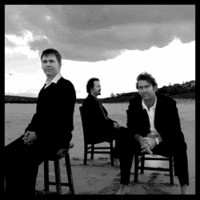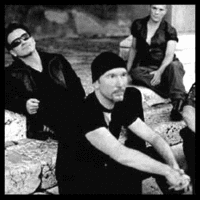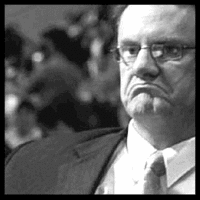 There is only one album that is inextricably tied to my memories. Last Stop Heavenly Heights is that album. Listening to it instantly takes me back to where I first heard it, years ago, in the luscious countryside of Northern NSW.
There is only one album that is inextricably tied to my memories. Last Stop Heavenly Heights is that album. Listening to it instantly takes me back to where I first heard it, years ago, in the luscious countryside of Northern NSW.
I’d seen Karma County on the sadly departed Recovery one Saturday morning. I was still in high school then, often spinning Frenzal Rhomb’s Not So Tough Now and TISM's Machiavelli & The Four Seasons, and moshing to whatever punk act happened to perform at underage shows. Karma County were an incredible breath of fresh air on Recovery, a show so focused on alterna-indie-rock-whatever bands. Karma County played Postcard – I think – and it was too fucking cool. Three guys in suits - I think - playing beautiful, pared-down, worldly pop.
I’d forgotten about their performance until a few months later when I was visiting Byron Bay. My parents and I were on a road trip to Kyogle, a beautiful part of northern New South Wales where the only noises that disturb you are the cows or the small streams that flow through the valleys.
I was flicking through albums in a Byron record store and I happened upon Last Stop. I remembered how impressed I was by their Recovery performance, and figured the album couldn’t be too bad for only $20. I bought it, glad that I had a new CD to listen to in the house – or more accurately, shack – my parents and I were staying in.
In an old four-wheel drive, we drove up to Kyogle, driving up a winding dirt road and trying to avoid hitting the cows who seemed to stand deliberately in our way. It was a long drive – the brakes on the old car weren’t the best, and as such the roads had to be tackled slowly and surely to prevent an unfortunate roll down a grassy hill.
Finally we stopped the four-wheeler nearby the shack, which was half-way up a hill, hidden away behind hundreds of trees. Getting up there meant crossing a stream and walking up through rough bush. My parents and I jumped over stones to avoid getting our feet wet in the stream, but of course are shoes became saturated.
The shack half-way up the hill was… interesting. Built by hand by a family friend, it was constructed with old wood, banged together with rusty nails. Bits of wall were missing, tarpaulin strung up to stop the wind and the rain getting in. There were benches for food preparation, an old gas stove and – thankfully – an old CD player.
We spent a week or so in that shack, rueing the justifiable lack of modern amenities but predictably mind-fucked by the beauty of the country. A short walk to the top of the hill let you see for miles: rolling hills and old trees swaying in the wind. Our nearest neighbour was an hours drive away.
It seemed to rain every night. Drops would start to fall on the tin roof a few hours after sunset, lulling you into the kind of divine relaxation that only a stay in the country can afford. After each big storm, you’d wake up to see all the plants rejuvenated, fresh with a glowing green hue. Under a grey sky I’d walk to the top of the hill that the shack was on and lie on the dirt and grass, looking up at the grey sky.
It was amazing. And all the while, Karma County’s Last Stop Heavenly Heights played. As soon as I heard the bass line on the opening track, I Took Your Name In Vain, I could tell I’d chosen the perfect album for this perfect place. Michael Galeazzi’s acoustic bass notes dropped their way down a scale, richly-textured, spreading through the track like a vine. When I’d listen to the album on dark nights, his perfect plucking would blend in with the rain, his double bass reverberating like the water on the roof.
Stuart Eadie’s drums had the same effect. His brushed cymbals – especially on the evocative The Water Moves - would mix with the water running its way down the hill, joining unknown streams and secret rivers. Brendan Gallagher's guitars, tuned to open D, seemed effortlessly slow-handed. They lulled and cooed, seeming to interact with the trees that swayed in the autumn winds. And his voice was so deep, especially on the title track, that he seemed to be the brother of the loud thunder which would strike, warning the valleys of the impending rains. He sang with the kind of sad sincerity you hear on old, fuzzy blues records from the '30s.
With every listen, the album seemed to be more and more natural, like it had always existed and it had just taken Gallagher, Eadie and Galeazzi to crystallise it. The sounds felt like they had lay dormant in the earth and were only now being brought to fruition by the heavy rains of Northern NSW. The album was slow and methodical, like the land I was living in. Sometimes it would explode like a crack of lightning – the bluesy solo in That Man Was A Knife for example – but then it would resume its previous existence, seemingly only enriched by the disturbance, like the wild grass that would grow stronger and thicker after a deluge.
Like the birds calling, the dew on the grass in the mornings, the stones covered in moss and the water in the streams pushing its way to…wherever, Last Stop Heavenly Heights became part of the landscape of Kyogle. Somehow it perfectly emulated the movements and sounds and smells and sights of the extraordinary Australian landscape.
Gallagher’s lyrics told of broken hearts and suburban dreams, but the music remained firmly planted in the countryside. When Gallagher sang ‘her dark hair is the sea / and I’m a failing ship / all faith goes overboard / as my heart runs aground’ his voice sounded like he was the only person who would or could ever walk on the musical landscape of East Meets South. The album just seemed right.
Surreally, the music became the landscape. The album transformed into the countryside around it. And every time I listen to the album – and I often do – I feel like I’m sitting in the rain at the top of a hill, looking down on a wet country side, the water dripping from my hair to the ground, little drops of water running down my face, my shirt dampening before I take it off to feel the dirt on my back as I lay.
Even the album’s title seemed to preternaturally understand how seamlessly its sounds would blend into this landscape… Kyogle was Last Stop Heavenly Heights. It was the end of the line, where everything is right and good and there’s no need to go on.
Every time I listen to it, I can see the grey skies above me, the axe propped up against the house and every river stone I walked on. I can hear the flapping of the tarpaulin as the wind screams and the birds singing as the sun rises over the damp valley. And I can smell the damp wood and the indefinable sweetness of the country. The album is everything you could hope for an album to be and more. It is life, death, birth, hope, sadness, love, betrayal. It’s Last Stop Heavenly Heights, my favourite album of all time.(Originally published at fasterlouder.com.au).




